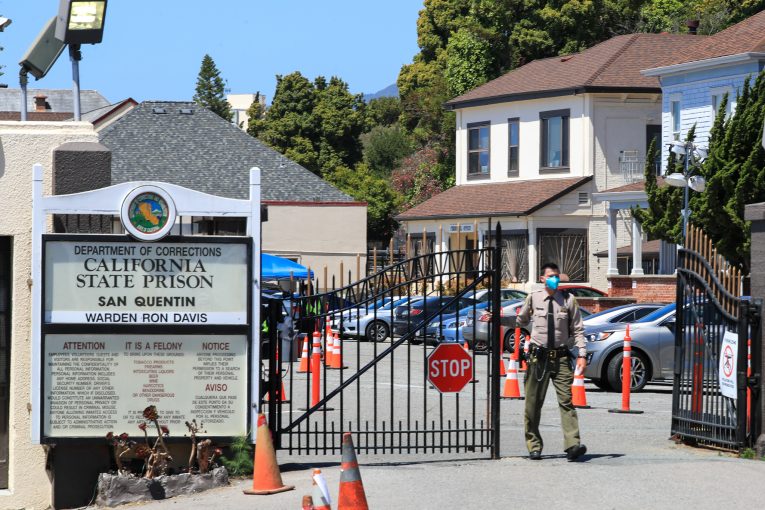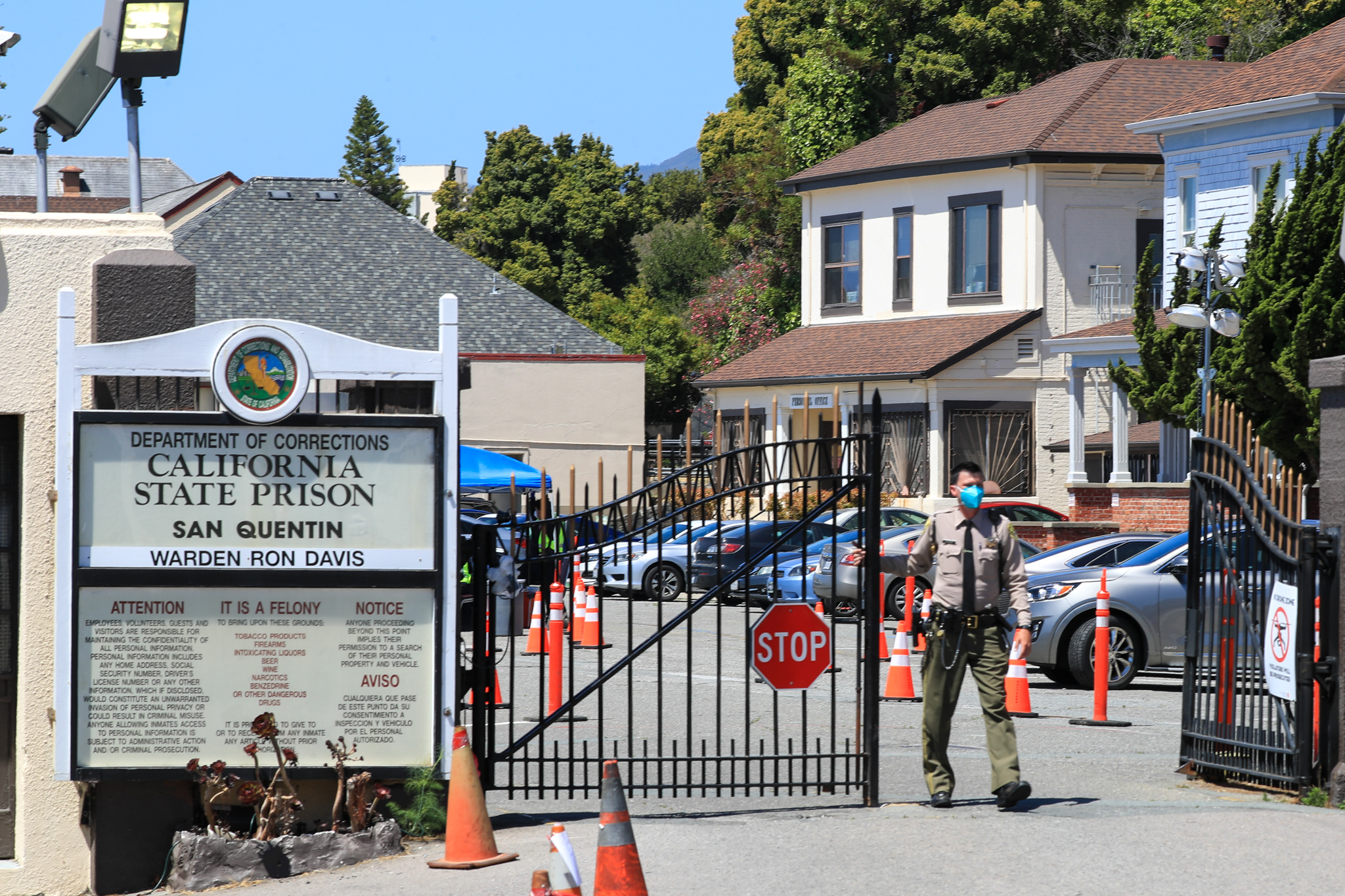

By Linh Nguyen
California’s Proposition 20, on the Nov. 3 ballot, campaigns on the slogan “Keep California Safe,” though racial justice advocates warn of its adverse consequences on criminal justice reform progress.
Known as the Criminal Sentencing, Parole and DNA Collection Initiative, Prop. 20 will recategorize certain crimes to the list of violent felonies for which early parole is restricted.
A few crimes set for recategorization are certain types of theft and fraud crimes that could either be charged as misdemeanors or felonies (wobblers). This proposition would also require DNA collection for certain misdemeanors.
But, according to California racial justice advocates, Prop. 20 will actually do more harm than the good it campaigns on. They urge California voters to vote no on Prop. 20.
In a public letter signed by over 100 grassroots organizations fighting for criminal justice reform, they write, “Prop. 20 is dangerous because it seeks to embed us more firmly in a culture of punishment.”
According to the letter, Prop. 20 would make it easier to charge low-level crimes, like bicycle theft, as a serious felony. It would drop the felony theft threshold from 950 dollars to 250 dollars and create a new set of felony crimes.
For incarcerated people, Prop. 20 would restrict access to parole and rehabilitative programs, which would make it harder for them to earn credit toward release.
Racial justice advocates say that this “anti-reform initiative also violates privacy” in requiring persons convicted of certain misdemeanors, like shoplifting, to submit to the collection of a DNA sample.
Passing Prop. 20 would undo “key aspects” of Props. 47 and 57 and Assembly Bill 109—three measures that were each intended to reduce the state’s prison incarcerated population.
Prop. 47, passed in 2014, reclassified certain theft and drug possession offenses from felonies to misdemeanors and authorized defendants serving sentences or completed sentences for felony offenses that would have qualified as misdemeanors under the proposition to petition courts for resentencing or reclassification of convictions under the new provisions.
In 2016, California voters passed Proposition 57, which allows parole consideration for nonviolent felons, changes policies on juvenile prosecution and authorizes sentence credits for rehabilitation, good behavior and education.
AB 109, known as the Public Safety Realignment Act of 2011, shifted correctional responsibilities for lower-level felons (nonviolent, non-sexual and non-serious offenses) from state prisons to local custody. The reform was designed to reduce incarceration rates and correction costs in the belief that county corrections would be more efficient than state corrections.
According to a study from the Center on Juvenile and Criminal Justice, crime rates have gradually decreased amid the passages of these reforms.
Research also shows that there is no direct connection between violent crime and the release of people from jail under Props. 47 and 57.
In another report by the Center of Juvenile and Criminal Justice, it finds Prop. 20 would “erase much of California’s criminal justice reform progress by increasing taxpayer spending on carceral budgets by hundreds of millions of dollars, and stealing vital funding from community systems of care, prevention, and rehabilitation—programs that actually keep people safe.”
The letter claims that the Prop. 20 campaign “relies on the rhetoric of fear, scare tactics, and spurious claims of surging violent crime to support their call for harsher sentencing and deeper carceral spending. Simply put, Prop. 20 supporters want you to believe that additional carceral spending and harsher sentencing will keep people safe.”
Prop. 20 would also add $2.3 billion in carceral spending to California’s already $17 billion corrections budget.
“The central message of Prop. 20, that we must police our way to public safety, is not rooted in facts; you can find its origins in the Trumpian belief that public safety is attained through ‘law and order,’ militant law enforcement and oppression,” said Brian Kaneda, L.A. Coordinator with Californians United for a Responsible Budget (CURB). “This is out of step with the people of California and this cultural moment.”
The ACLU of California, Ella Baker Center for Human Rights, Youth Justice Coalition and Dignity and Power Now were among the groups that signed the letter.
According to measure proponent Assemblyman Jim Cooper (D-Elk Grove), a former police officer known for his opposition to police reform, the goal of Prop. 20 is to “reform the unintended consequences of reforms to better protect the public.”
To sign up for our new newsletter – Everyday Injustice – https://tinyurl.com/yyultcf9

“Uh, this says it’s Trumpian, so it must be bad!” – Simple minded voter.
I think most people would agree that public safety is attained through ‘law and order’.
Otherwise you have CHOP.
pre-1945 Germany and Italy believed that… and in Italy, ‘the trains ran on time’… still works in China, Russia, and some other authoritarian countries…
Nixon believed in that too… until he decided to retain his “order”, by authorizing folk to break the law. And then try to subvert that by firing key investigatory officials… “Saturday Night Massacre” ring any bells?
Another Godwin’s Law moment.
I would hate to think how much things would get out of hand with no law and order.
Law and order is fine. The issue is whether we need “tough-on-crime” “lock ’em up” policies to achieve that.
As we’ve seen all to often recently, law and order has meant breaking the law to maintain the social order.
Scary part is not only what you pointed out, but there are simple-minded voters who will think “Uh, this says it’s Trumpian, so it must be great!”…
I was not swayed one way or the other… as I went thru the props, I looked at the front part of the guide (‘Readers Digest’ version)… and wrote down my first impressions, “yes/no”, and if I was 95+% sure, I’d mark it with an !… if not, I marked with a ?… then I drilled down into the entire guide, and either affirmed my first impression, turned a ? into a !, or reversed my first impression…
I had a ! by 20 first blush… did not change it. A lot of simple-minded voters will not think… just cast vote… one way or the other…
Well that’s one method. Better than copying the Democratic Party cheat sheet that comes in the mail, which is what the truly simple-minded do.
Those cheat sheets are one of the reasons I went NPP…
And, actually, most of those cheat sheets are put out under the name of a party, but not for reals… a form of ‘spoofing’…
Trues! And so many be spoofed
Prop 20 would reverse much-needed criminal justice and prison reforms—which, so far, appear to be having positive results. It would remove incentives for prisoners to participate in education and rehabilitation programs. What it would primarily do is to provide a financial windfall to the prison system at a time when resources are already stretched thin and other priority issues (e.g., mental health, affordable housing, homelessness) go largely unaddressed.
Legislation by initiative is rarely a good idea, particularly on complex issues. There is no opportunity for public input or legislative compromises that often identify and address unforeseen or unintended consequences. The changes that would result from Prop 20 should be considered individually through the legislative process, not as a package in a single, all-or-none initiative.
I strongly suspect it was brought up legislatively… no action…
This puppy is a Citizens’ Initiative… or do you believe the only initiatives have to originate in the legislature? Do you believe Hiram Johnson and the other ‘reformers’ were wrong in establishing citizen initiatives in 1910-11? Prop 13 was a citizens initiative, that had no public input or legislative compromises… was that wrong?
There are no ‘correct’ answers to those questions… but goes to one’s philosophy/perspective…
As for me, I have mixed feelings… an important tool, but often misused… like using a hammer to drive a screw, or a screwdriver to set a nail… it is what it is, and I prefer dealing with the opportunities/limitations…
Given a Democrat super-majority in both CA legislative branches, and Democrat Guv., the initiative is the only way to work around an inability to get issues addressed for some folk… just like in 1910-11…
It may have made sense a century ago. Now it’s become a mechanism accessible only to big moneyed interests to push their agendas, not for ordinary citizens. Recommended reading: Democracy Derailed: Initiative Campaigns and the Power of Money (2001) by David S. Broder.
As Keith O is fond of saying, elections have consequences.
Exactly right. Keith O and Barack O both are fond of saying that.
Ahhhh, yes… the spoils system… gotta’ love it!
Keith
“I would hate to think how much things would get out of hand with no law and order.”
Another straw man argument. No one is advocating for “no law and order”. What Prop 20 does is to rely upon a belief that longer sentences, harsher punishment, less spending on prevention and rehabilitation, and arbitrarily chosen monetary sums will lead to safer communities.
I see public safety differently. Yes, we need law and order. We also need crime prevention in the form of less poverty, and better opportunities for those living in situations of deprivation and sometimes desperation. I am for less incarceration, more education. Less “punishment” and more rehabilitation. I favor programs that have led to a decrease in crime overall, not those that make us “feel safer” while actually trapping many in a punishment-based system from which there is no escape and no dedicated help for either the inmate or the innocent family members left behind.
Interesting side note about this proposition is that the largest donor, by far, was the CCPOA, and then they asked for their money back. I don’t think I’ve ever seen that before.
https://ballotpedia.org/California_Proposition_20,_Criminal_Sentencing,_Parole,_and_DNA_Collection_Initiative_(2020)